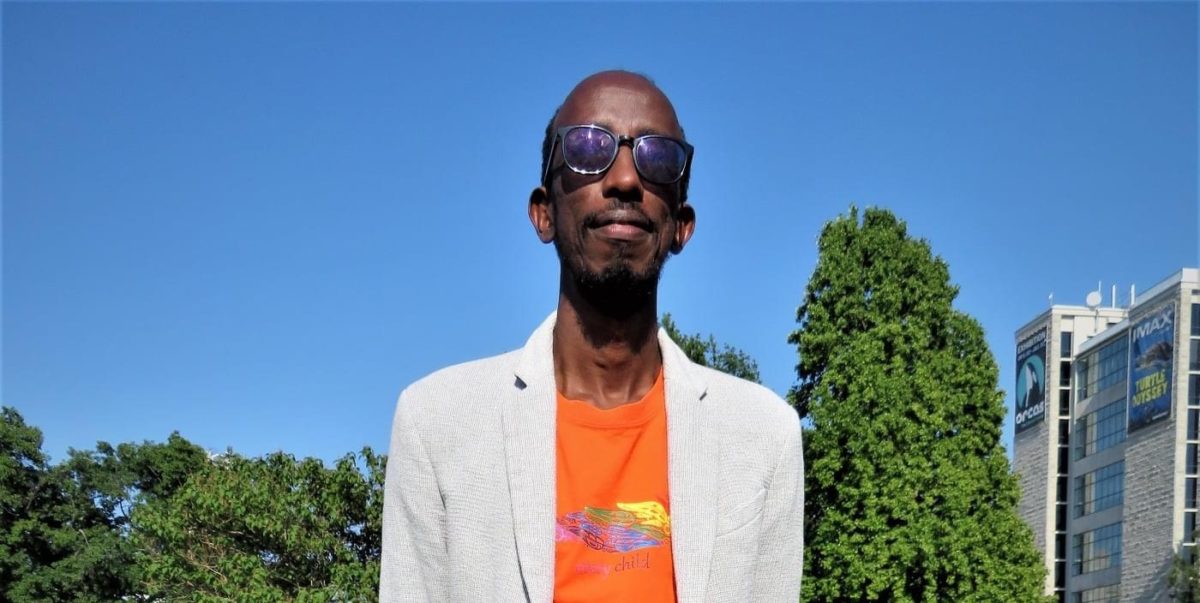It’s the day after the first National Day for Truth and Reconciliation. The need for reflection, conversation and participation did not end at midnight. Every day — today, tomorrow, and the one after that — we must reflect on what reconciliation means to each one of us. What is our responsibility and role in this process? Each of us has a unique part to play.
As a refugee, I’ve had to reflect on my position in this nation-to-nation conversation.
As a Canadian I recognize that I am a guest on this beautiful and blessed land. This land rightfully belongs to the First Nations.
I see my role as an uninvited refugee as something of a bridge. I don’t have the same attachment to some of the Canadian myths that many people were born here hold dear. I can also relate to experiences of being displaced, uprooted in one’s homeland, separated from families, racially profiled or treated differently because of the way that I look, because that is my personal experience, too.
I hope that being in this in-between space allows me to have challenging conversations with Indigenous people as well as settlers and newcomers.
A reconciliation process needs to involve repairing harmed and damaged relationships. This goes far beyond wide-sweeping apologies and requires an ongoing effort to learn to do better and not inflict more harm, but it also requires being willing to face the past with courage and honesty. We will not achieve reconciliation in my lifetime. It is ongoing work and you learn more as you go.
Canada needs to get serious and put the Truth and Reconciliation Commission (TRC) Calls to Action into practice.
Recently I brought a motion to Victoria Council and the Union of British Columbia Municipalities which was endorsed. It calls on the Province of British Columbia to provide support and equitable access to trauma-informed, Indigenous-led education, training and policy guidance for local governments, associated law enforcement and emergency services to implement local government-specific recommendations from the TRC, Missing and Murdered Indigenous Women and Girls Inquiry, and the United Nations Declaration on the Rights of Indigenous Peoples.
We have to listen to Indigenous voices and communities and allocate the budget to make real change possible.
Reconciliation is hard work and there aren’t easy answers or actions. There is no point of “yes we have accomplished reconciliation!” After so many years of violent settler colonialism (that is still continuing), there is an overwhelming amount of work and change that needs to happen. But I see people trying and learning and working to unpack the lies that they have been taught and teaching their children and those around them about why reconciliation is important.
Listen to Indigenous people. If someone tells you that your actions or ideas are causing harm, sit with that. It’s ok, and actually it’s very important. It’s the way we learn and it’s an opportunity to educate yourself.
Read the TRC calls to action and don’t put the burden of teaching on Indigenous people in your life.
As a new Canadian and an elected official, I always aim for my actions to reflect the words of the Honourable Murray Sinclair:
“You may not have responsibility for the past but you do have a responsibility for the future because you made a commitment to this country. And the responsibility for the future is reconciliation.
So, that means that you still have to understand what this history is, you have to understand what it has done to this country, you have to understand what it is doing to this country and you have to understand what it will continue to do, unless we change it. And the leadership from those newcomer communities that are occupying more and more leadership positions in government also need to figure out where they fit into that dialogue around change for the future, because they do fit. They are going to be influential leaders of this conversation.”



